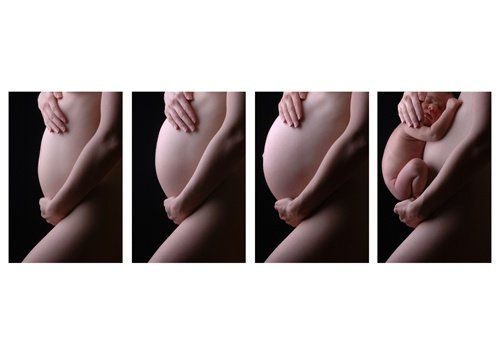Fertility is big business, but new research suggests new challenges to harvesting eggs via IVF: a common compound in baby bottles has been shown to reduce the viability of a woman’s eggs.
Baby bottle makers in the US voluntarily removed it from their products a few years back, and while Israel follows EU standards, compromised baby bottles are still plentiful on shelves in the Middle East. We know certain and specific chemicals makes men make compromised sperm. And now bisphenol A, otherwise known as BPA, has been shown to compromise the quality of a woman’s eggs retrieved during in vitro fertilization. Such news for reproductive health and female fertility continues to paint a grim picture, environmentally and sexually speaking.
From ScienceDaily comes this report:
A small-scale University of California, San Francisco-led study has identified the first evidence in humans that exposure to bisphenol A (BPA) may compromise the quality of a woman’s eggs retrieved for in vitro fertilization (IVF). As blood levels of BPA in the women studied doubled, the percentage of eggs that fertilized normally declined by 50 percent, according to the research team.
The chemical BPA, which makes plastic hard and clear, has been used in many consumer products such as reusable water bottles. It also is found in epoxy resins, which form a protective lining inside metal food and beverage cans.
“While preliminary, the data indicate the negative effect of BPA on reproductive health and the importance of allocating more funding to further investigate why such environmental contaminants might be disrupting fertility potential,” said Victor Y. Fujimoto, MD, lead study author and professor in the UCSF Department of Obstetrics, Gynecology, and Reproductive Sciences, who also is on the faculty of the UCSF Center for Reproductive Health.
BPA is gaining global attention as an environmental contaminant that impacts health owing to its widespread exposure and endocrine-disrupting properties, according to the researchers. An endocrine disruptor is a synthetic chemical that when absorbed into the body either mimics or blocks hormones and interferes with the body’s normal functions.
Previous studies in mouse models have indicated that BPA levels alter the DNA of eggs, and a 2010 study in humans demonstrated BPA urinary concentrations to be inversely associated with the number of eggs retrieved during an IVF cycle.
“Unfortunately, at this time there is no clinically-available test to determine BPA levels in women,” Fujimoto said. “Despite the limited evidence, a cautious approach for women who are considering IVF treatment would be to reduce their exposure to BPA through modifications in lifestyle and diet.”
One pressing question for residents in Israel and across the Middle East is, when will BPA be banned from use in plastics all together and across the board, now that human studies show the damage of this compound is not limited to animal studies? Until that time, we at Greenprophet.com encourage readers to become informed consumers, and avoid products and plastics that they suspect are made with this compound.
From Consumer Reports, comes these guidelines, provided in 2008. We were unable to find any comparable suggestions from the mainstream media in the Middle East.
- Identify which containers might have the chemical. Polycarbonate is usually clear rather than cloudy, although it may be colored. If the container carries a recycling code, it will be marked with the number 7 or the letters “PC,” or both. No. 7 bottles made with BPA-free polyethersulfone (PES) won’t have the PC marking. Other BPA-free plastic alternatives include polyethylene, which may be marked with recycling codes 1 (PET) or 2 (HDPE), and polypropylene, 5 (PP).
- For baby bottles, glass or BPA-free plastics such as polyethylene are the safest choices, as Consumer Reports has advised in the past.
- For those who reuse water bottles frequently and want to avoid BPA, consider polyethylene, stainless steel, or aluminum with BPA-free liners.
More eco-sexuality and health news:
GM Foods Shrinking Reproductive Health in a Womb Near You
Exposure to Toxins Permanently Changes Sperm DNA
Controversy: Birth Rate in Middle East Bad News for Mother Earth
Tinamarie is a regular contributor to Greenprophet.com. You can follow her on @ModernLoveMuse and facebook. She blogs at www.tinamariebernard.com. Photo credit: Khaled El-Hage




